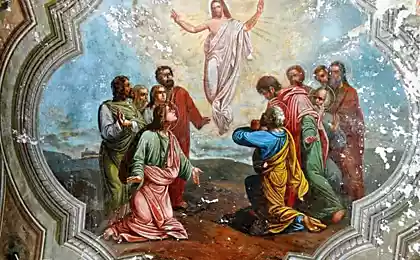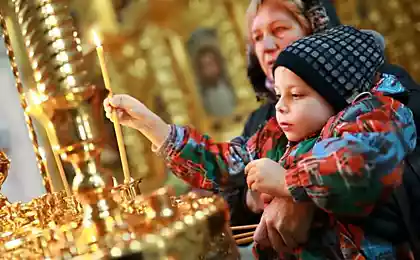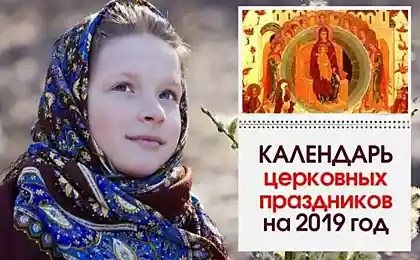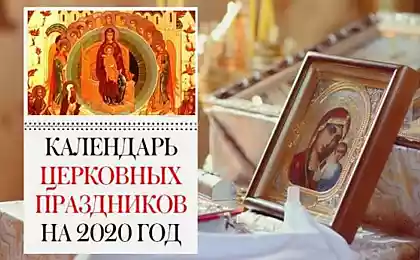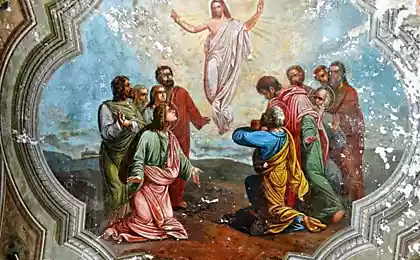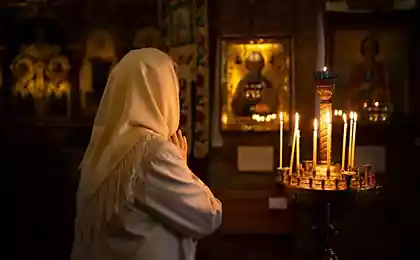203
Traditions on the Day of Vasily the Great
January 14 is a special day in the Orthodox calendar, because believers celebrate three holidays at once: the old New Year, the day of St. Basil and the circumcision of the Lord. This day has a special history and many traditions.
398292
DepositPhotos
Today. "Site" It will tell you about each of these holidays, their features, as well as about what not to do on this day.
First, let’s talk about St. Basil and remember why the church honors him to this day. Basil the Great is Archbishop of Caesarea of Cappadocia, a great righteous man and preacher. Church sources call Basil an ascetic, theologian and scientist.
Saint Basil was born around 330 in the city of Caesarea of Cappadocia in a Christian family. As a child, he was educated under the guidance of his parents, and for further education went to Constantinople, and then to Athens, where he studied rhetoric, philosophy, mathematics, physics and medicine.
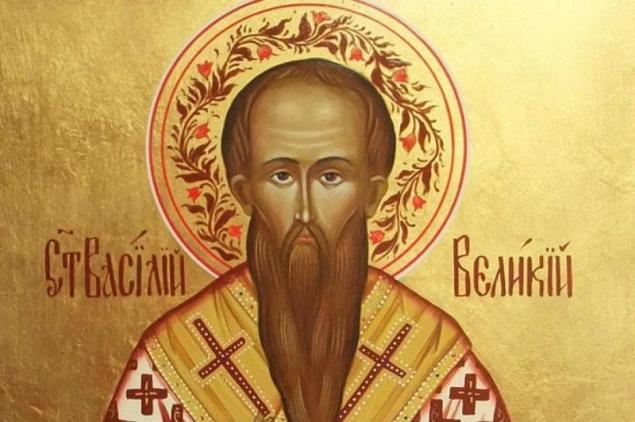
In 357 Basil returned to Caesarea, where he taught rhetoric for a time. However, he found his purpose in the teaching of the word of God. Soon he was ordained deacon, and in 364 in the rank of presbyter. He cared faithfully and faithfully for his flock, which deserved their love.
Basil lived a short life, but left behind many theological works: nine talks on the Six Days, 16 talks on various psalms, five books in defense of the Orthodox doctrine of the Holy Trinity and much more.
Saint Basil has always enjoyed special veneration among Orthodox believers. Believers are praying for Him, praying for Him. Tribute is paid to the memory of Basil on January 14, in honor of which a special liturgy is served in the church, written by the saint himself.
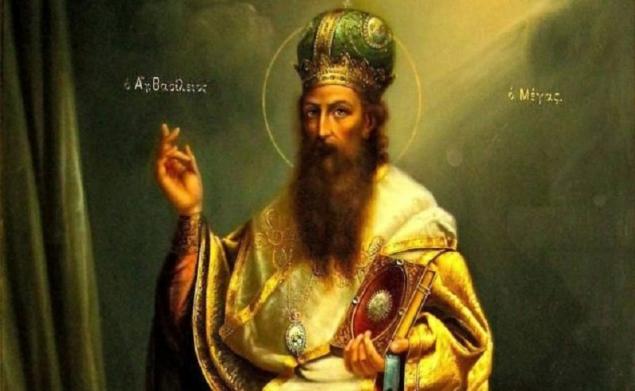
The old New Year is also celebrated on this day. This holiday appeared due to the change of chronology. According to the old style, it was on this day before the first day of the new year.
However, after switching to the Gregorian calendar, or the new style on January 14, St. Basil’s Day also became the old New Year. Here. Why the Old New Year That's the day they celebrate.
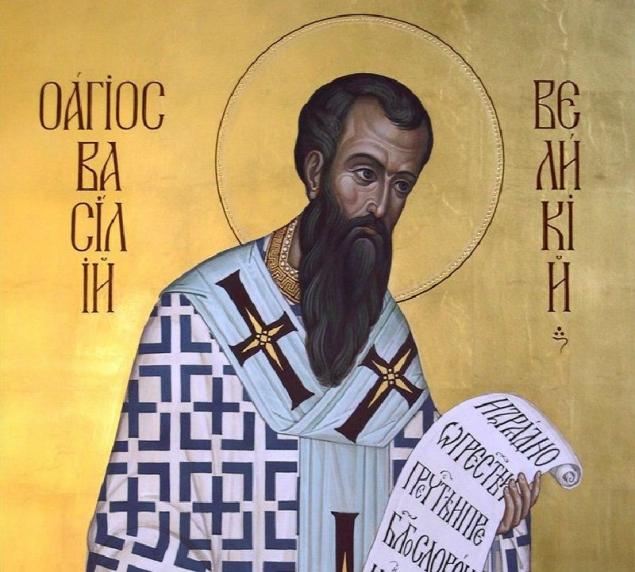
According to folk tradition, it is customary to prepare the second kutya. This kutya is called generous, because it, unlike the one served on the Holy Evening, is not fast. The hostess cooked kutya early in the morning. It was believed that you need to eat it to the last crumb, then the house will be happy.
In the evening before January 14, according to custom, a rich table is laid, on which various dishes should be served. Be sure to have dumplings with cottage cheese and pancakes on the table. All this was made to treat guests who will come generously and sow.
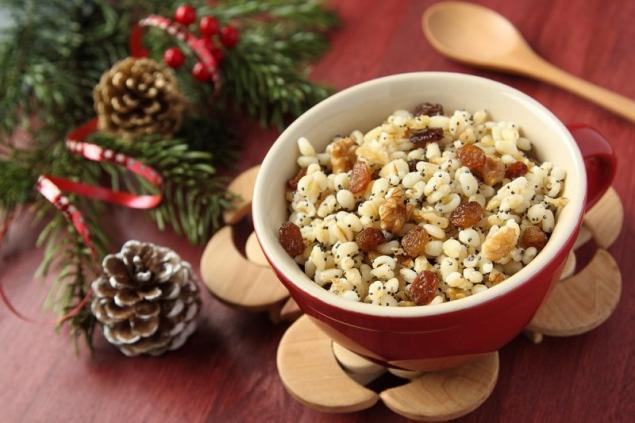
DepositPhotos
Sowing or sowing is a special tradition on St. Basil’s Day. It is believed that the house should be sown by boys. From the morning of January 14, the boys took grain and went to friends, relatives and friends to sow in their homes, wishing the owners happiness and wealth.
Popular belief says that the first in the new year in the house should enter a man, sowing is exclusively male. I remember how in childhood boys ran sowed, and my sister and my mother forbade, they say, not a woman’s business.
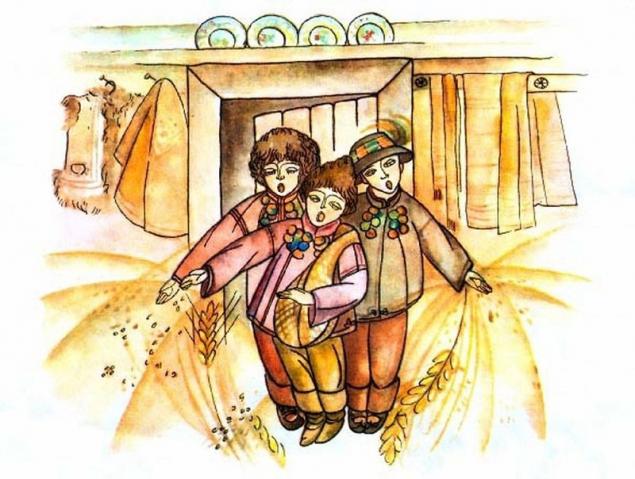
The sowers would come into the house, sing songs and scatter handfuls of grain around the house. “Sowing, sowing, sowing, Happy New Year”That’s how the songs sound on January 14.
Grain, which was sown, could not be harvested until Christening, January 19. Then it was collected in a bag and stored until sowing, and then mixed with another grain. It promised a good harvest. Under no circumstances should this grain be thrown away. It is best to collect and store as a talisman.
After sowing, people went to church to pay their respects to Vasily. Usually people asked him for a good harvest, health and other benefits. On this day it is forbidden to indulge in gluttony and drink alcohol. This day should be spent calmly, without unnecessary fuss and quarrels, best of all in prayer.
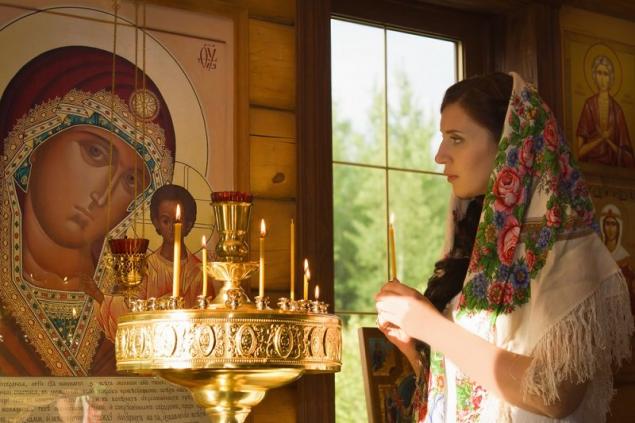
DepositPhotos
Prayer to St. Basil “O great and glorious Saint of Christ, all the universal Church to the God-wise teacher, Orthodox firm confessor and champion, blessed Father Vasily!” See from the heights of heaven upon us, humbly falling to you, and pray to the Lord Almighty, His faithful servant on earth was, that he may grant us the right firm and unchangeable preservation of faith, holy obedience to the Church, the lives of our correction, and in all needs, sorrows and temptations, quick help, patience and strengthening.
Give us your holy blessing, that this new summer and all the days of God please us in peace and repentance, and in the Kingdom of Heaven we shall be revered with you and with all the saints the Life-giving Trinity to glorify and glorify the Father and the Son and the Holy Spirit, for ever and ever. Amen.
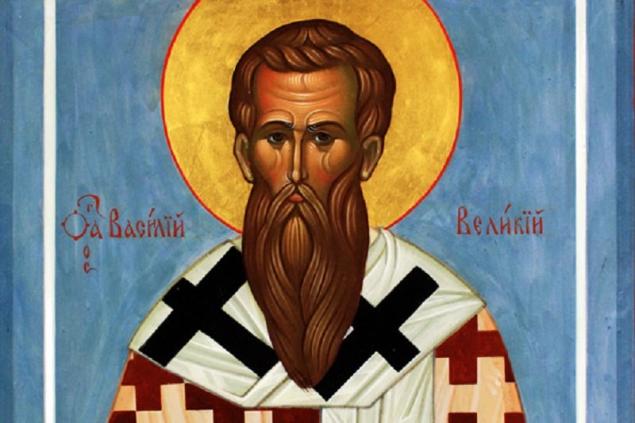
There are no special bans on the day of Basil, except that it was strictly forbidden on this day to give and borrow money. It was assumed that there would be no money all year. Also on this day, our ancestors tried to predict the weather and harvest for the whole year, so there are a couple of interesting signs.
We congratulate you on your holiday and wish your house prosperity and happiness. May the year be fun, joyful, like a holiday!
Don't forget to cook a kutya today. Recently we shared with you the best recipes for any holiday.
Very soon, on January 19, the feast of Holy Baptism will take place. Earlier we wrote about actions that are categorically impossible to commit on Epiphany Eve.
How do you celebrate Vasily and Old New Year? You cooking kutya yet? Tell me in the comments.
398292
DepositPhotos
Today. "Site" It will tell you about each of these holidays, their features, as well as about what not to do on this day.
First, let’s talk about St. Basil and remember why the church honors him to this day. Basil the Great is Archbishop of Caesarea of Cappadocia, a great righteous man and preacher. Church sources call Basil an ascetic, theologian and scientist.
Saint Basil was born around 330 in the city of Caesarea of Cappadocia in a Christian family. As a child, he was educated under the guidance of his parents, and for further education went to Constantinople, and then to Athens, where he studied rhetoric, philosophy, mathematics, physics and medicine.

In 357 Basil returned to Caesarea, where he taught rhetoric for a time. However, he found his purpose in the teaching of the word of God. Soon he was ordained deacon, and in 364 in the rank of presbyter. He cared faithfully and faithfully for his flock, which deserved their love.
Basil lived a short life, but left behind many theological works: nine talks on the Six Days, 16 talks on various psalms, five books in defense of the Orthodox doctrine of the Holy Trinity and much more.
Saint Basil has always enjoyed special veneration among Orthodox believers. Believers are praying for Him, praying for Him. Tribute is paid to the memory of Basil on January 14, in honor of which a special liturgy is served in the church, written by the saint himself.

The old New Year is also celebrated on this day. This holiday appeared due to the change of chronology. According to the old style, it was on this day before the first day of the new year.
However, after switching to the Gregorian calendar, or the new style on January 14, St. Basil’s Day also became the old New Year. Here. Why the Old New Year That's the day they celebrate.

According to folk tradition, it is customary to prepare the second kutya. This kutya is called generous, because it, unlike the one served on the Holy Evening, is not fast. The hostess cooked kutya early in the morning. It was believed that you need to eat it to the last crumb, then the house will be happy.
In the evening before January 14, according to custom, a rich table is laid, on which various dishes should be served. Be sure to have dumplings with cottage cheese and pancakes on the table. All this was made to treat guests who will come generously and sow.

DepositPhotos
Sowing or sowing is a special tradition on St. Basil’s Day. It is believed that the house should be sown by boys. From the morning of January 14, the boys took grain and went to friends, relatives and friends to sow in their homes, wishing the owners happiness and wealth.
Popular belief says that the first in the new year in the house should enter a man, sowing is exclusively male. I remember how in childhood boys ran sowed, and my sister and my mother forbade, they say, not a woman’s business.

The sowers would come into the house, sing songs and scatter handfuls of grain around the house. “Sowing, sowing, sowing, Happy New Year”That’s how the songs sound on January 14.
Grain, which was sown, could not be harvested until Christening, January 19. Then it was collected in a bag and stored until sowing, and then mixed with another grain. It promised a good harvest. Under no circumstances should this grain be thrown away. It is best to collect and store as a talisman.
After sowing, people went to church to pay their respects to Vasily. Usually people asked him for a good harvest, health and other benefits. On this day it is forbidden to indulge in gluttony and drink alcohol. This day should be spent calmly, without unnecessary fuss and quarrels, best of all in prayer.

DepositPhotos
Prayer to St. Basil “O great and glorious Saint of Christ, all the universal Church to the God-wise teacher, Orthodox firm confessor and champion, blessed Father Vasily!” See from the heights of heaven upon us, humbly falling to you, and pray to the Lord Almighty, His faithful servant on earth was, that he may grant us the right firm and unchangeable preservation of faith, holy obedience to the Church, the lives of our correction, and in all needs, sorrows and temptations, quick help, patience and strengthening.
Give us your holy blessing, that this new summer and all the days of God please us in peace and repentance, and in the Kingdom of Heaven we shall be revered with you and with all the saints the Life-giving Trinity to glorify and glorify the Father and the Son and the Holy Spirit, for ever and ever. Amen.

There are no special bans on the day of Basil, except that it was strictly forbidden on this day to give and borrow money. It was assumed that there would be no money all year. Also on this day, our ancestors tried to predict the weather and harvest for the whole year, so there are a couple of interesting signs.
- If there is snow or fog on Vasily, then there will be a good harvest.
- A full hole of water and fog foreshadow a large spill.
- If Vasily is windy, there will be a good harvest of nuts.
- If the first day of the new year is fun, and the whole year will be.
- New Year's Eve is the turn for spring.

DepositPhotos
We congratulate you on your holiday and wish your house prosperity and happiness. May the year be fun, joyful, like a holiday!
Don't forget to cook a kutya today. Recently we shared with you the best recipes for any holiday.
Very soon, on January 19, the feast of Holy Baptism will take place. Earlier we wrote about actions that are categorically impossible to commit on Epiphany Eve.
How do you celebrate Vasily and Old New Year? You cooking kutya yet? Tell me in the comments.

